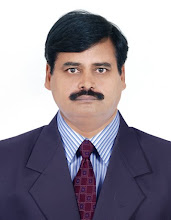Dear All
Please find the details of the paper published in the International Journal of Mahila Pratishtha as:
..............................................................................
SOCIAL
CHANGE FOR THE WELLNESS OF PEOPLE AND NATION
Lakshmi Narayana
N
Mentor
Geo
Rehabilitation Centre, Hyderabad.
ABSTRACT
The processes of
development and growth of People and Nation are continuous matching to the
needs and dynamics of various groups who should get these benefits. India has
got sufficient resources to cater the needs of its people but not their greed.
The inequality and inequity of distributing resources to various groups creates
gap and getting widened from time to time. It is evident from the reality that
the mission of poverty alleviation has been deviated. Added to this, the
processes of Liberalization, Privatization and Globalization though brought
development on one side but got limited in its distribution to the people over
the Nation and thus widened the gap between the urban & rich and rural
& poor. The recent processes happened in the Nation has been brought to the
people that the ‘benefits of development should reach the last man sitting at
any corner of the area’ is mostly on paper but different in reality. Continuation
of such mismatch widens gap between rich & poor; and urban & rural
which further resulted for inequality, inequity, bias, vulnerability, marginalization,
isolation, migration, rivalry, and crime among people in general and particularly
women. The challenges of such unpleasant and unhealthy causes and consequences
are alarming to the stakeholders and forcing them to look for better
alternatives. The recent target to the Nation is to achieve the targets of Sustainable
Development Goals. The opportunities and initiatives taken up are opened gates
to look for better wellness as solutions matching to the needs and dynamics of the
People, Community and Nation. The models and initiatives of the study are
simple, flexible, scalable, replicable and sustainable.
Key Words: Development, Social Change, Community,
Empowerment, Social Media, Challenges, Isolation, Opportunities, Wellness.
Statement of the Problem
Development dominated by Investor’s
business approaches result for more of negative or unhealthy outputs, service delivery
systems and impact which further affect the wellness of the People, Environment
and Nation.
Recommendations
Change should continue as
a process as it works as a driving force to move forward in search of growth, development,
sustainability and wellness. The recommendations made for the continuation of the
study include:
ü To organize Awareness cum Advocacy Programmes
to the Stakeholders for understanding the need of Change for achieving Growth, Development,
Sustainability and Wellness of the People and Nation.
ü To encourage Students to take up Project
Works and Research Studies on Growth, Development, Sustainability and Wellness
of the People and Nation.
ü To encourage Youth and Senior Citizens to
work as a Change Makers to strengthen systems with values in an Accessible, Friendly
and Empowered Environment or Community.
ü To strengthen Educational Institutes for beginning
the process of Change and to organize Workshop & Seminars with publications.
ü To strengthen Social Media to reach People
with better connectivity for an effective sharing and dissemination along with
monitoring and evaluation.
ü To support NGOs to work with Government
and Private (Corporate) on Partnership basis (GPNP) for effective and efficient
way of reaching people with matching solutions.
...........................................
Looking forward foe better sharing and dissemination.
With thanks
